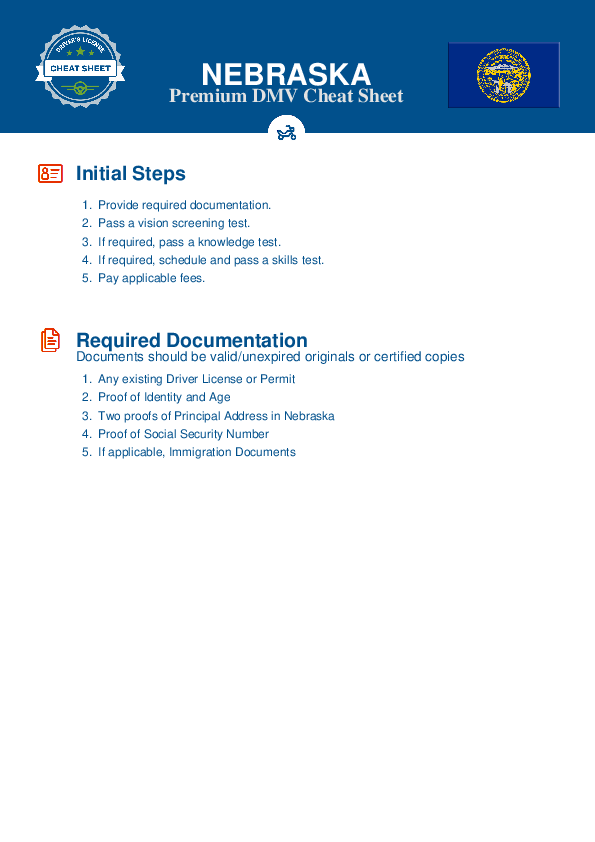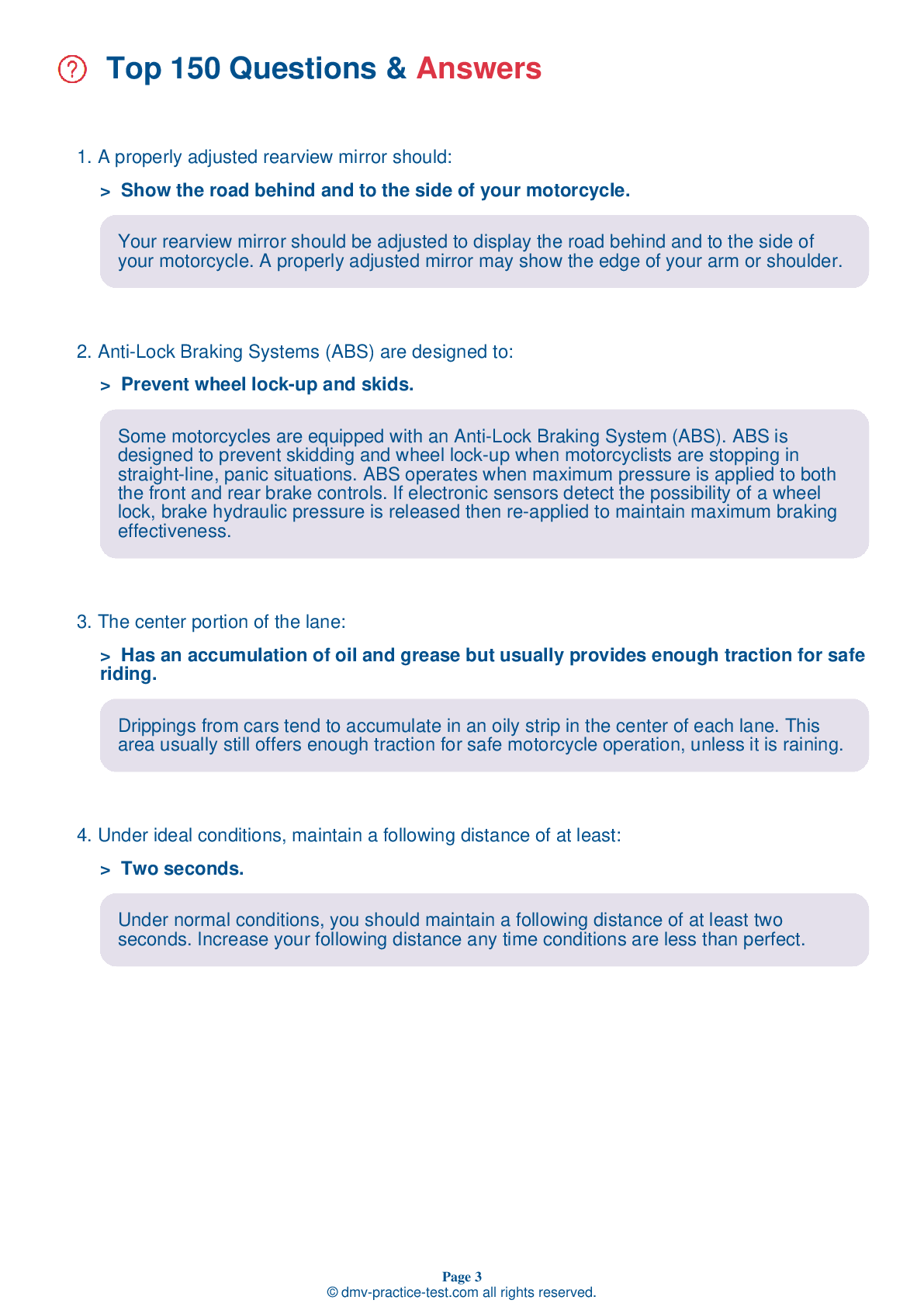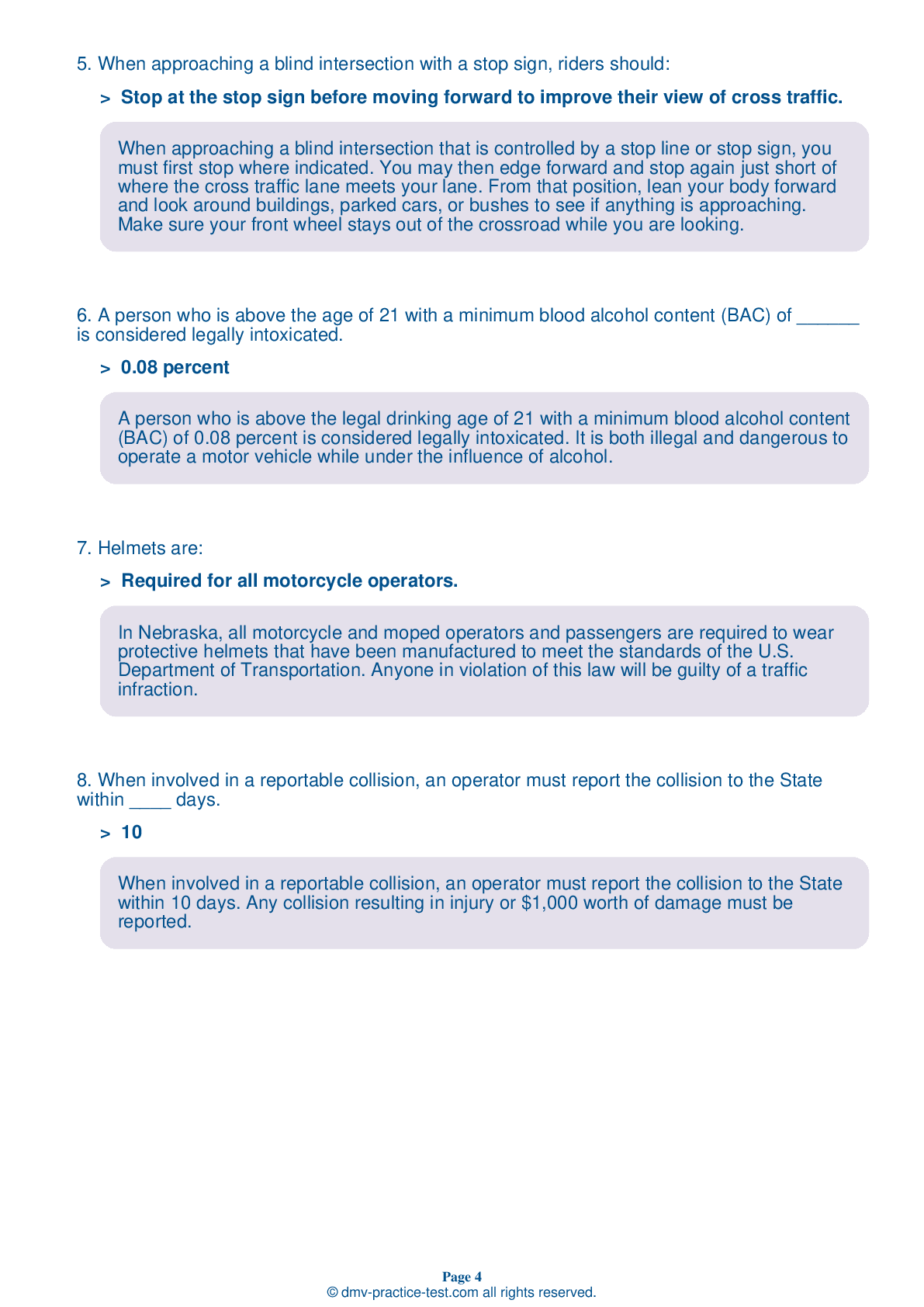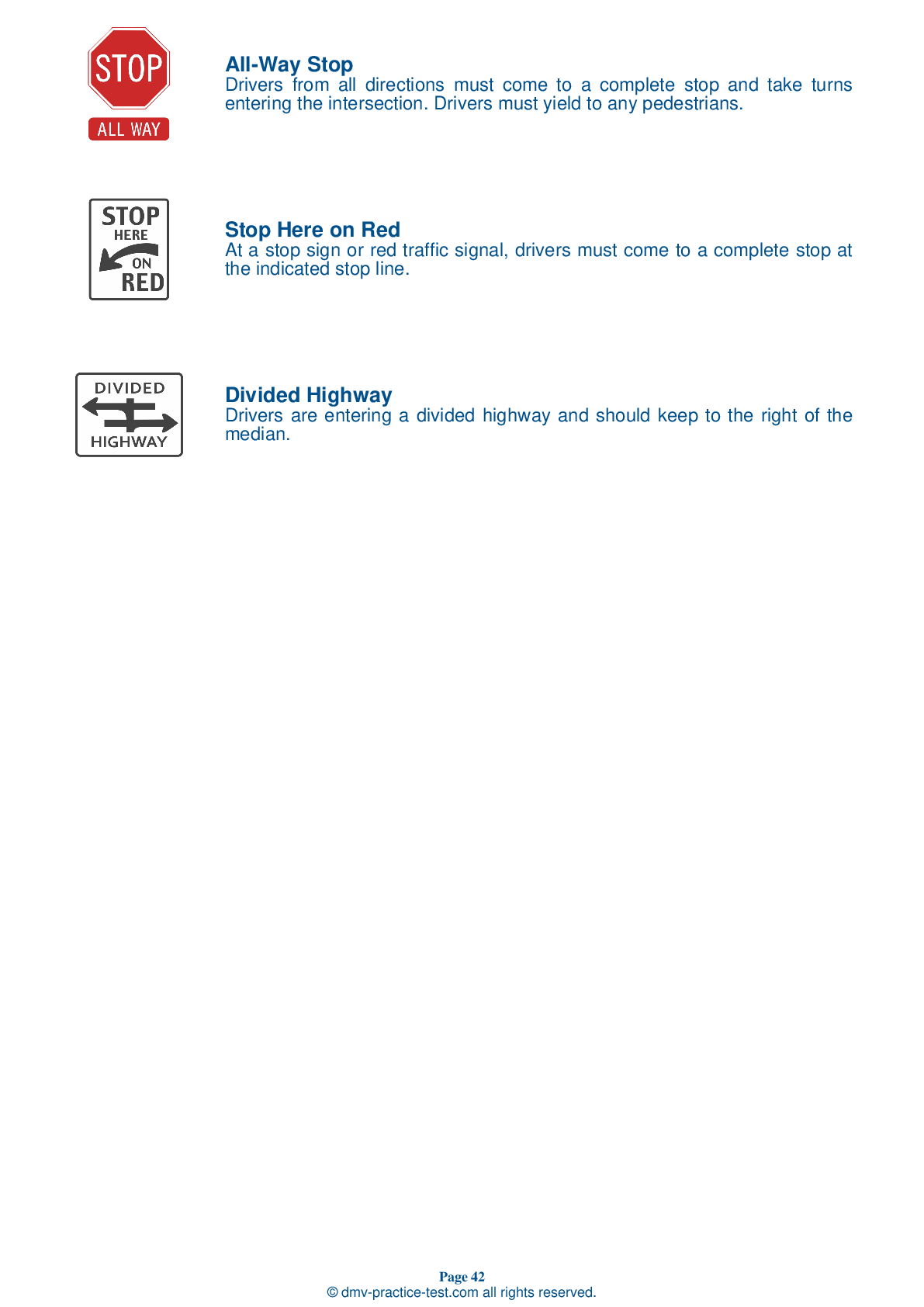Motorcycle Test | License NE 2026 | FREE Online Practice! #6
Take this FREE motorcycle test (license in NE 2026) to check your knowledge of the road rules. To improve your results, download a motorcycle handbook online, study theory, and practice for free on our website. Still worried about how to get a motorcycle license in Nebraska in 2026? Check our website for more sample tests, train as much as possible, and boost your grades!
1 . Slippery surfaces can make it difficult to control a motorcycle. Which of the following would be considered a slippery surface?
Wet pavement; roads covered in loose gravel or sand; muddy, snowy, or icy areas; painted lane markings; and metal covers and plates in the road can be slippery surfaces. Motorcyclists should ride with extra caution when riding over slippery surfaces.
2 . What does alcohol do to your riding skills and judgement?
Alcohol negatively affects many skills needed for safe riding, including your reaction time and ability to see clearly. It can also harm your judgment of speed and distance, lower your inhibitions, and make you more prone to taking chances.
3 . What is the best lane position for a motorcycle operator?
There is no lane position that is always best and no lane position that should always be avoided. Select a lane position that is appropriate for your current riding conditions, allowing you to maintain an adequate space cushion and be visible to others.
4 . To reduce the amount of time you need to react to a hazard, you should:
In potential high-risk areas, such as school zones or construction zones, cover the clutch and both brakes. This cuts down the amount of time you will need to react to a hazard.
5 . When riding, goggles:
Goggles can provide protection for your eyes, but only a face shield can protect your entire face. Eyeglasses are not an adequate substitute for either goggles or a face shield.
6 . When being passed, you should ride in:
When being passed, it is generally safest to ride in the center portion of your lane. Riding on the side of the lane nearest the passing driver increases the danger of colliding with them, and riding on the side farthest from the driver may tempt them to return to your lane too soon.
See the exact questions that will be on the 2026 Nebraska DMV exam.
99.2% of people who use the cheat sheet pass the FIRST TIME
Jeneen was tired of paying $5/gallon. She got herself a scooter that required the motorcycle license. She studyed the motorcycle test cheat sheet and passed her test the next day!
Christopher tells us how he knew nothing prior to obtaining the motorcycle study guide, and he only got one question wrong because he clicked on the wrong answer by mistake.



